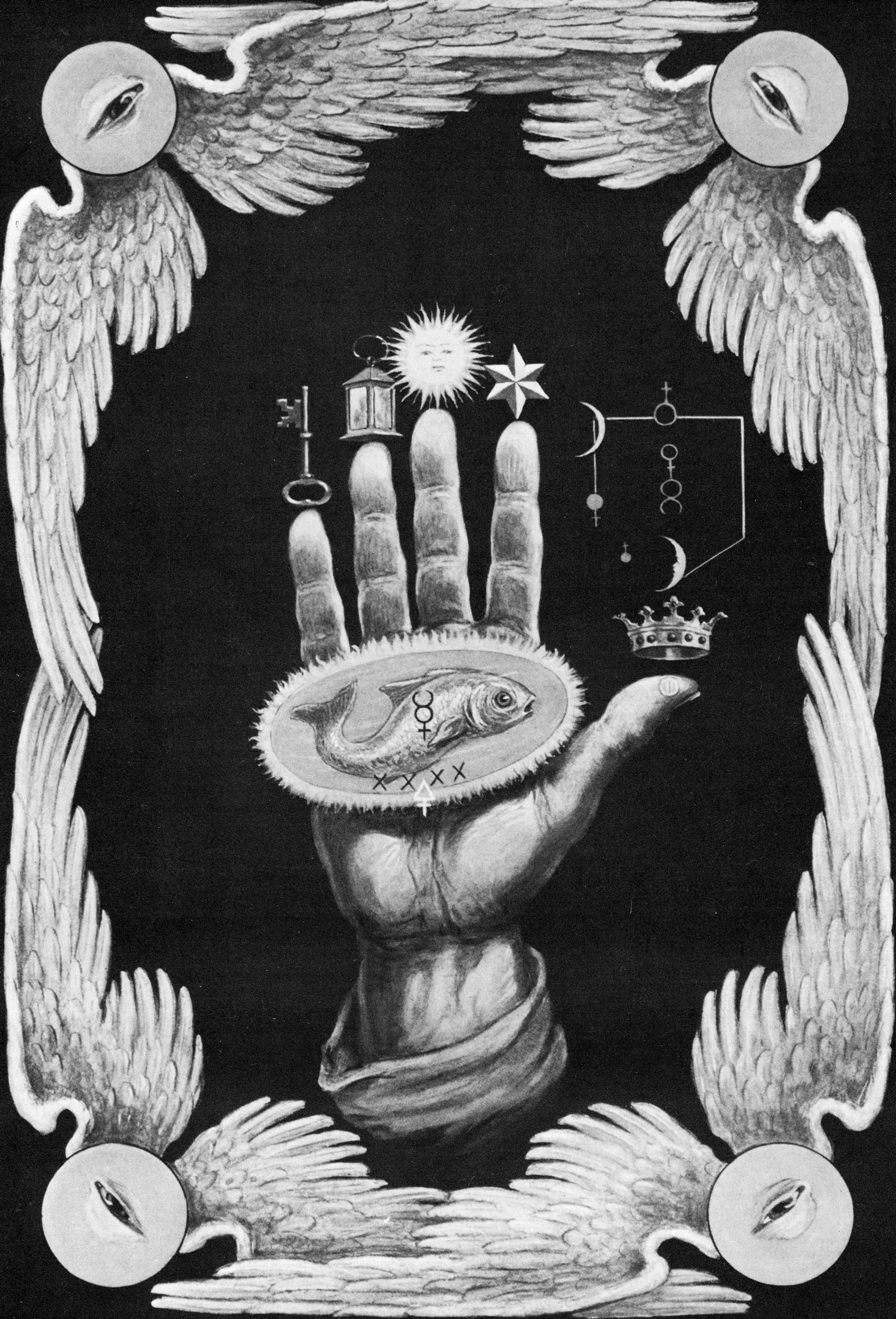
Western Esoteric Art
The best truth is secret truth
1690 – 1947It is a common opinion of magicians, that stones inherit great virtues, which they receive through the spheres and activity of the celestial influences, by the medium of the soul or spirit of the world. Authors very much disagree in respect of the probability of their actually having such virtues in potentia, some debating warmly against any occult or secret virtue lying hid in them; others, as warmly, shewing the causes and effects of these sympathetic properties. However, to leave these trifling arguments to those who love cavil and contentions better than I do, and, as I have neither leisure nor inclination to enter the lists with sophists, and tongue-philosophers; I say, that these occult virtues are disposed throughout the animal, vegetable, and mineral kingdoms, by seeds, or ideas originally emanating from the Divine mind, and through supercelestial spirits and intelligence always operating, according to their proper offices and governments allotted them; which virtues are infused, as we before said, through the medium of the Universal Spirit, as by a general and manifest sympathy and antipathy established in the law of Nature. Amongst a variety of examples, the loadstone is one most remarkable proof of the sympathy and antipathy we speak of. However to hasten to the point. Amongst stones, those which resemble the rays of the sun by their golden sparklings, (as does the glittering stone ætites) prevent the failing-sickness and poisons, if worn on the finger; so the stone which is called oculis solis, or eye of the sun, being in figure like to the apple of the eye, from which shines forth a ray, comforts the brain, and strengthens sight; the carbuncle, which shines by night, hath a virtue against all airy and vaporous poisons; the chrysolite stone, of a light green colour, when held against the sun, there shines in it a ray like a star of gold; this is singularly good for the lungs, and cures asthmatical complaints; and if it be bored through, and the hollow filled with the mane of an ass, and bound to the left arm, it chases away all foolish and idle imaginations and melancholy fears, and drives away folly. The stone called iris, which is like crystal in colour, being found with six corners, when held in the shade, and the sun suffered to shine through it, represents a natural rainbow in the air. The stone heliotropium, green, like a jasper or emerald, beset with red specks, makes the wearer constant, renowned, and famous, and conduces to long life; there is, likewise, another wonderful property in this stone, and that is, that it so dazzles the eyes of men, that it causes the bearer to be invisible; but then there must be applied to it the herb bearing the same name, viz. heliotropium, or the sun-flower; and these kind of virtues Albertus Magnus, and William of Paris, mention in their writings. The jacinth also possesses virtue from the sun against poisons, pestilences, and pestiferous vapours; likewise it renders the bearer pleasant and acceptable; conduces, also, to gain money; being simply held in the mouth, it wonderfully cheers the heart, and strengthens the mind. Then there is the pyrophilus, of a red mixture, which Albertus Magnus reports that Æsculapius makes mention of in one of his epistles to Octavius Cæsar, saying, “There is a certain poison, so intensely cold, which preserves the heart of man, being taken out, from burning; so that if it be put into the fire for any time, it is turned into a stone, which stone is called pyrophilus:” it possesses a wonderful virtue against poison; and it infallibly renders the wearer thereof renowned and dreadful to his enemies. Apollonius is reported to have found a stone called pantaura, (which will attract other stones, as the loadstone does iron) most powerful against all poisons: it is spotted like the panther, and therefore some naturalists have given this stone the name of pantherus: Aaron calls it evanthum; and some, on account of its variety, call it pantochras.